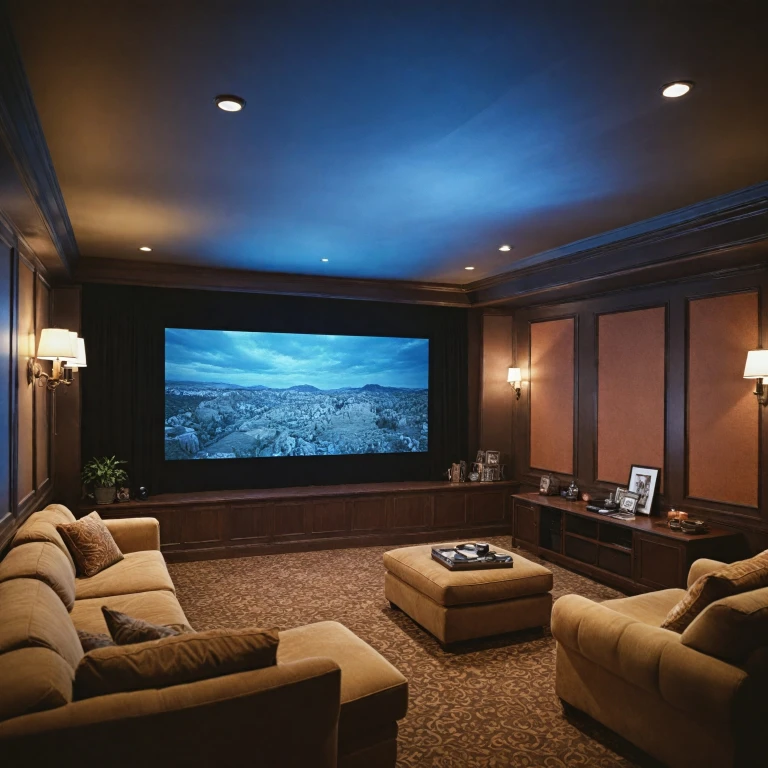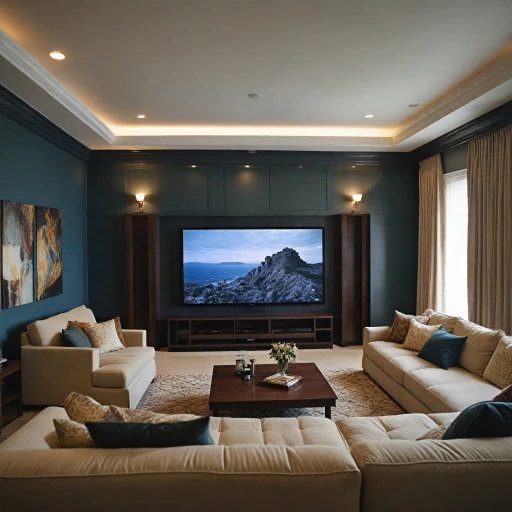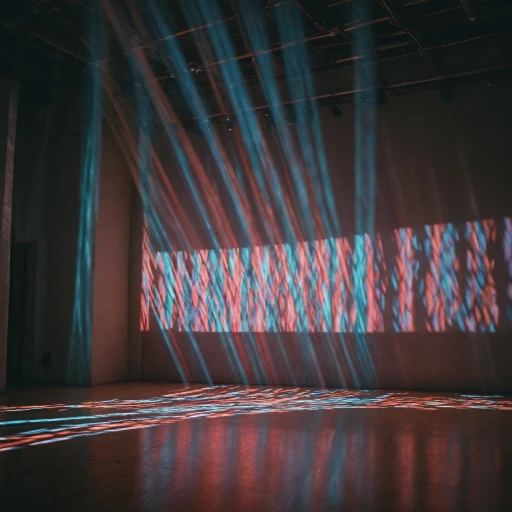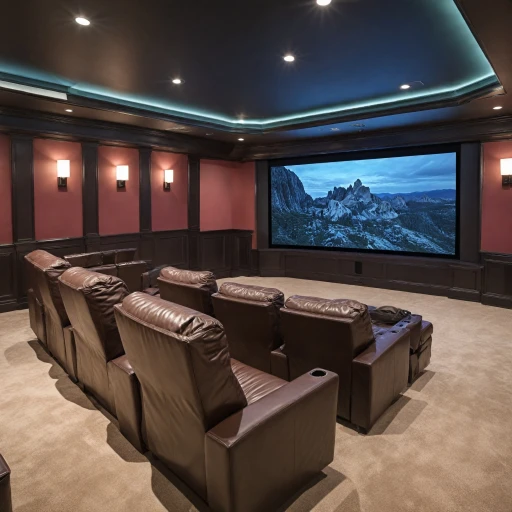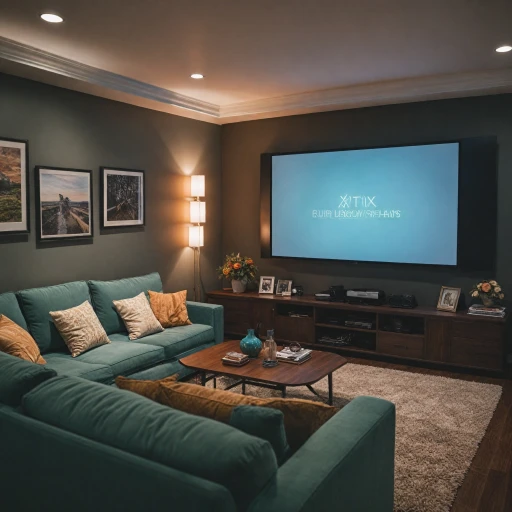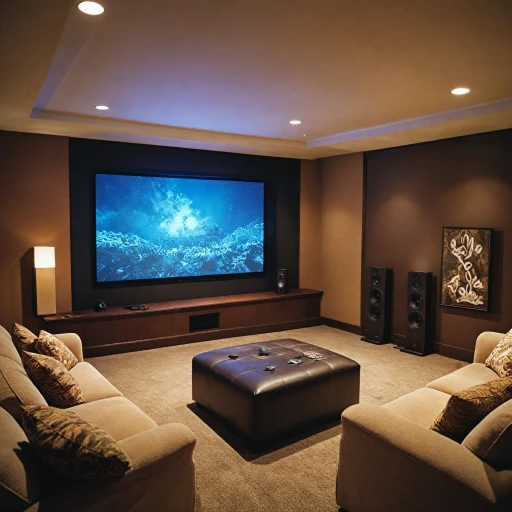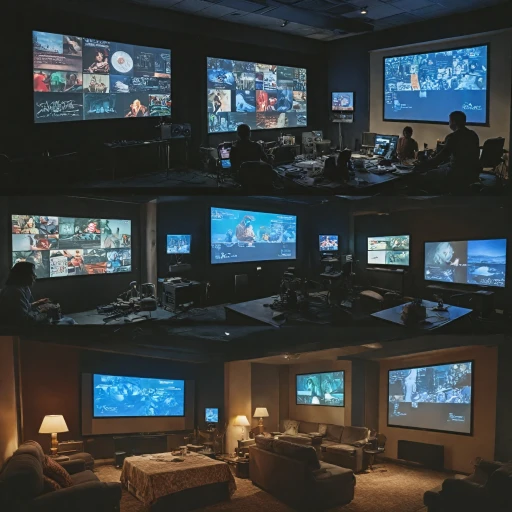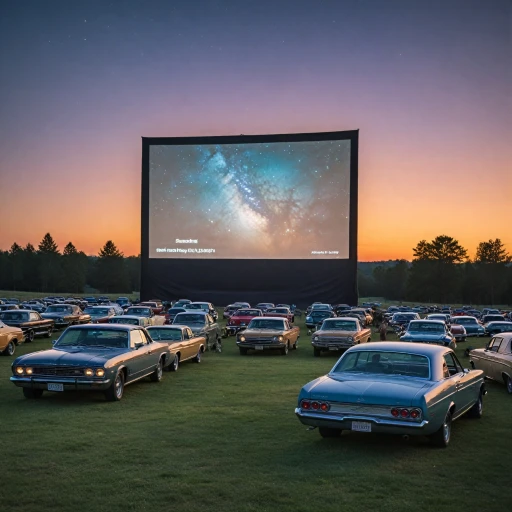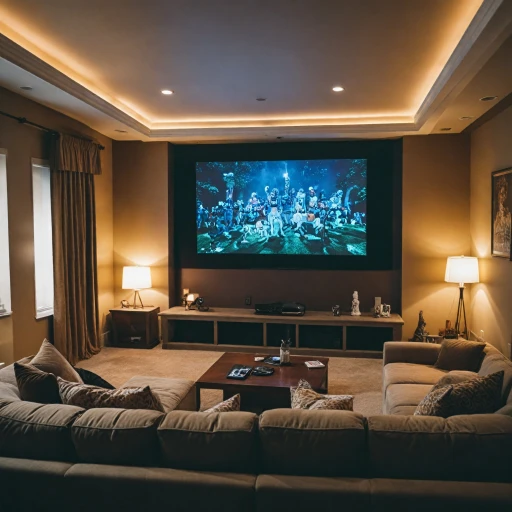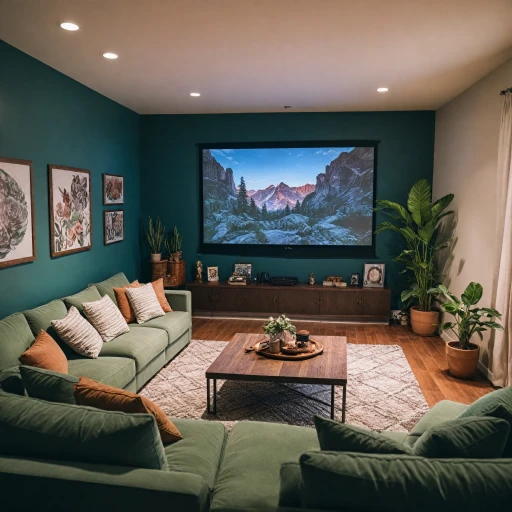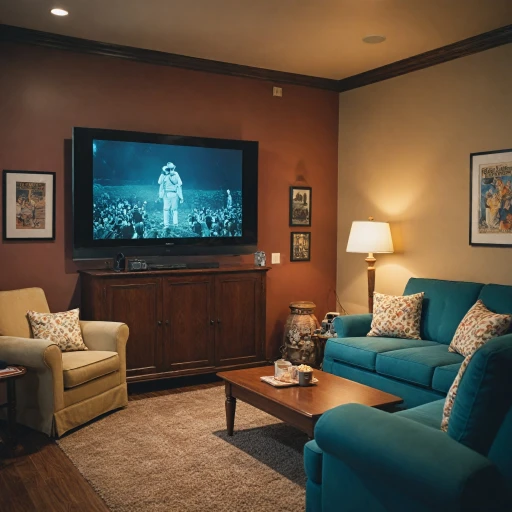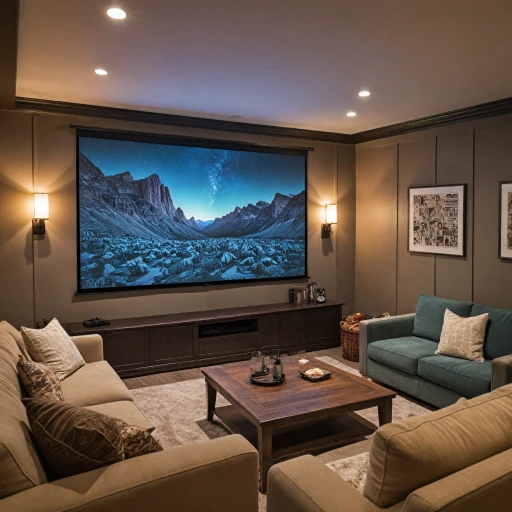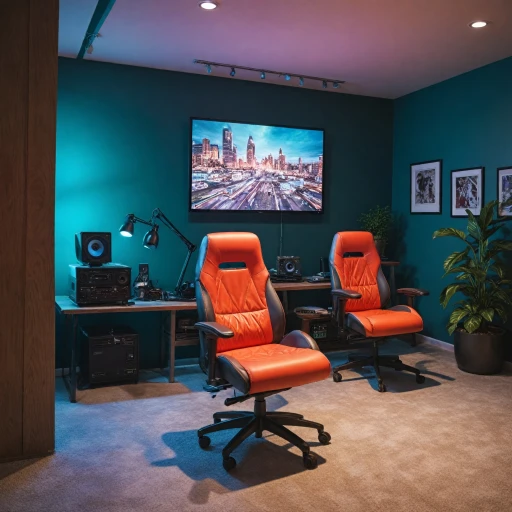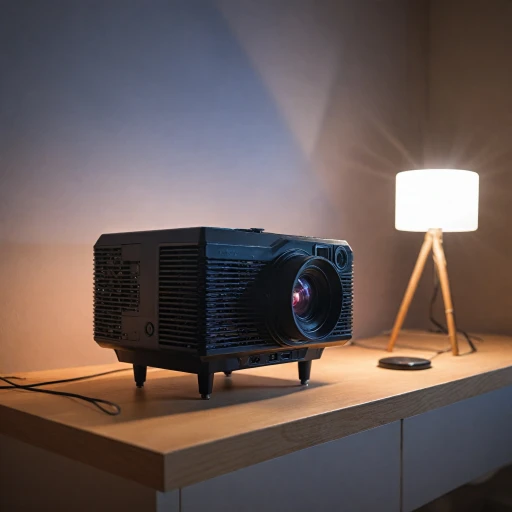
What is a 4000 Lumen Projector?
Understanding the Basics of a 4000 Lumen Projector
A 4000 lumen projector is a powerful device designed to deliver bright and vivid images, making it an excellent choice for home theater enthusiasts. The term 'lumens' refers to the measure of brightness emitted by the projector's lamp or laser source. In this case, 4000 lumens indicate a high level of brightness, suitable for various lighting conditions, including well-lit rooms.
Projectors like the Epson PowerLite, BenQ, and Optoma models often feature this level of brightness, ensuring that your viewing experience is not compromised by ambient light. Whether you're setting up in a dedicated theater room or a multi-purpose space, a 4000 lumen projector provides the versatility needed for optimal performance.
When considering a projector, it's essential to understand the difference between ANSI lumens and regular lumens. ANSI lumens offer a standardized measure, providing a more accurate representation of the projector's brightness. This is crucial when comparing different models, such as DLP projectors and LCD projectors, which may have varying brightness levels and color accuracy.
For those interested in exploring more about projector brightness, you might find this exploration of 6000 lumen projectors insightful, as it delves deeper into how brightness impacts your viewing experience.
In the following sections, we'll discuss how brightness affects image quality and the importance of selecting the right screen to complement your projector's capabilities. Additionally, we'll cover installation tips to ensure optimal viewing and compare 4000 lumen projectors with other options available in the market.
Brightness and Image Quality
Enhanced Brightness for Crystal Clear Images
A 4000 lumen projector brings significant advantages to your home theater setup, offering bright and detailed image quality that not all models can provide. Lumens measure the projector's brightness, and when you have a model offering 4000 ANSI lumens, it's suited for environments with ambient light, such as living rooms or meeting rooms. This brightness enhances the contrast and color accuracy, ensuring you see every detail in vibrant clarity. Whether you're projecting a blockbuster film or hosting a sports night, a 4000 lumen projector ensures you're getting a top-tier visual experience.
Finding the Right Balance: Brightness and Contrast Ratio
While the brightness is important, it's equally crucial to consider the balance with contrast ratio. High contrast ratios in brands like Epson PowerLite or Optoma offer deeper blacks and whites, contributing to image richness. This means that in addition to strong lamp power, you need a projector that balances these features well, whether you select an DLP projector, lcd projector, or laser projector.
Evaluating Projector Technology for Longevity
Modern projectors offer extensive lamp life, reducing the need for frequent replacements. Laser projectors can often boast longer life spans compared to traditional lamps, extending your enjoyment and decreasing maintenance. Look for models with technologies like advanced laser or LED components, providing both longevity and striking image quality. Additionally, features such as HDMI inputs and remote control functions enhance user-friendliness and flexibility in your home theater setup.
Choosing the Right Screen for Your Projector
Finding the Ideal Screen for Your Theater Setup
When setting up a home theater with a 4000 lumen projector, the choice of screen plays a crucial role in determining the quality of your viewing experience. It's not just about the brightness or the size, but how well your screen complements the attributes of projectors such as the Epson PowerLite or BenQ models. First, consider the type of screen material. The screen's color and texture directly impact color accuracy and contrast ratio. A high-gain screen may enhance brightness and contrast, which is beneficial when projecting in ambient light environments typical in meeting rooms or classrooms meeting setups. For a 4000 lumen projector, the typical settings in a darkened room allow you to use a matte white screen that offers broader viewing angles, which is great for seating arrangements where guests are spread out. Ensure that your screen matches the aspect ratio of your projector. Most home theater projectors, like those by Optoma and Epson Pro, support HD or 4K resolutions, so selecting the correct screen ratio will avoid unnecessary keystone correction that can lead to image distortion. For those opting for a short throw or ultra-short throw projector, verify that your screen can handle the unique projection angle to fill your visual field effectively. This setup helps maximize space and minimize shadowing, creating a star theater experience in limited spaces like apartments. Brands like BenQ and Optoma offer short throw options, which can be a great addition to your home setup. Finally, consider the size of your room and the throw distance of your projector to select an appropriately sized screen. A larger screen with a laser projector produces stunning visuals but requires adequate space to optimize projection distance and power usage efficiently. For more in-depth details on choosing the right screen for a drive-in theater-like experience at home, you can explore this guide on selecting the perfect projector.Installation Tips for Optimal Viewing
Setting Up Your Projector for the Best Experience
Installing a 4000 lumen projector in your home theater requires careful planning to ensure optimal viewing. Here are some essential tips to help you get started:
- Choose the Right Location: Consider the size and layout of your room. A ceiling mount can be an excellent option for saving space and achieving a professional look. Make sure the projector is positioned at the right distance from the screen to avoid distortion and ensure the best image quality.
- Consider Throw Distance: Depending on your room size, you might opt for a short throw projector. Brands like Epson, BenQ, and Optoma offer models that can project large images from a short distance, making them ideal for smaller spaces.
- Adjust the Keystone Correction: Most projectors come with keystone correction features that help align the image perfectly on the screen. This is crucial for maintaining the integrity of the picture and avoiding any trapezoidal distortion.
- Optimize the Power Source: Ensure your projector is connected to a stable power source. Using a surge protector can help protect your investment from power fluctuations.
- Use the Right Cables: HDMI cables are essential for transmitting high-quality video and audio signals. Ensure your cables are of good quality to prevent any signal loss.
- Test the Remote Control: Make sure the remote control is functioning correctly and can easily access all the projector's features. This will make it easier to adjust settings without having to physically interact with the projector.
By following these installation tips, you can maximize the performance of your 4000 lumen projector, ensuring a stellar viewing experience every time. Remember, the right setup can significantly enhance the color accuracy and contrast ratio, making your home theater a true star attraction.
Comparing 4000 Lumen Projectors to Other Options
Understanding the Differences in Projector Options
When considering a 4000 lumen projector for your home theater, it's essential to understand how it compares to other options available in the market. The brightness level, measured in lumens, is a crucial factor, but it's not the only one to consider.
Brightness and Versatility
A 4000 lumen projector offers a significant advantage in terms of brightness, making it suitable for various environments, including rooms with ambient light. This is particularly beneficial if you plan to use your projector in multi-purpose spaces like meeting rooms or classrooms. In contrast, lower lumen projectors might struggle in such settings, limiting their versatility.
Technology and Image Quality
Projectors like the Epson PowerLite and Optoma models often utilize advanced technologies such as LCD or DLP, which can impact color accuracy and contrast ratio. While a 4000 lumen projector provides bright images, the technology behind it, whether it's a laser projector or a traditional lamp-based model, will affect the overall image quality. Consider the type of content you plan to watch and the importance of color fidelity and contrast in your viewing experience.
Throw Distance and Installation
Another factor to consider is the throw distance. Short throw projectors, like some BenQ models, allow for a larger image from a shorter distance, which can be ideal for smaller rooms. In contrast, standard throw projectors might require more space to achieve the same image size. This can influence your installation choices, whether you opt for a ceiling mount or a more flexible setup.
Cost and Maintenance
While 4000 lumen projectors offer excellent performance, they may come at a higher price point compared to lower lumen models. Additionally, consider the lamp life and maintenance requirements. Some projectors offer free shipping and extended warranties, which can add value to your purchase. Laser projectors, for instance, typically have longer lamp life and require less maintenance, making them a cost-effective choice in the long run.
Ultimately, the choice between a 4000 lumen projector and other options depends on your specific needs and preferences. Whether you prioritize brightness, image quality, or installation flexibility, understanding these differences will help you make an informed decision for your home theater setup.
Maintenance and Longevity
Maximizing Your Projector's Life and Performance
Proper maintenance is essential to ensure your 4000 lumen projector continues to deliver exceptional performance. Projectors, whether they're Epson PowerLite or Optoma models, come with specific maintenance requirements that extend their life and maintain color accuracy.- Regular Cleaning: Dust accumulation can affect both the brightness and contrast ratio of your projector. Regularly clean the projector's vents and filters to keep it running smoothly. Avoid using harsh chemicals; instead, opt for a gentle brush or microfiber cloth.
- Lamp Care: If your projector uses a lamp, monitoring the lamp life is crucial. Most theater projectors, like BenQ models, will alert you when it's time to replace the lamp. Choose high-quality lamps for a replacement to ensure the colors and lumens power remain high.
- Laser Projectors: If you own a laser projector, such as certain Epson Pro models, you'll enjoy a longer lifespan and reduced maintenance. Laser projectors do not require lamp replacements, which can save you time and money in the long run.
- Proper Ventilation: Ensure that your projector is placed in a location with adequate airflow. This is especially important for short throw and DLP projectors, which can overheat without proper ventilation.
- Professional Maintenance: Consider scheduling periodic inspections by professionals, especially for ceiling-mounted projectors used in areas like conference rooms or classrooms meeting spaces.
- Free Support and Resources: Many manufacturers offer free shipping on parts and support services. Utilize these to help maintain your projector's performance.
